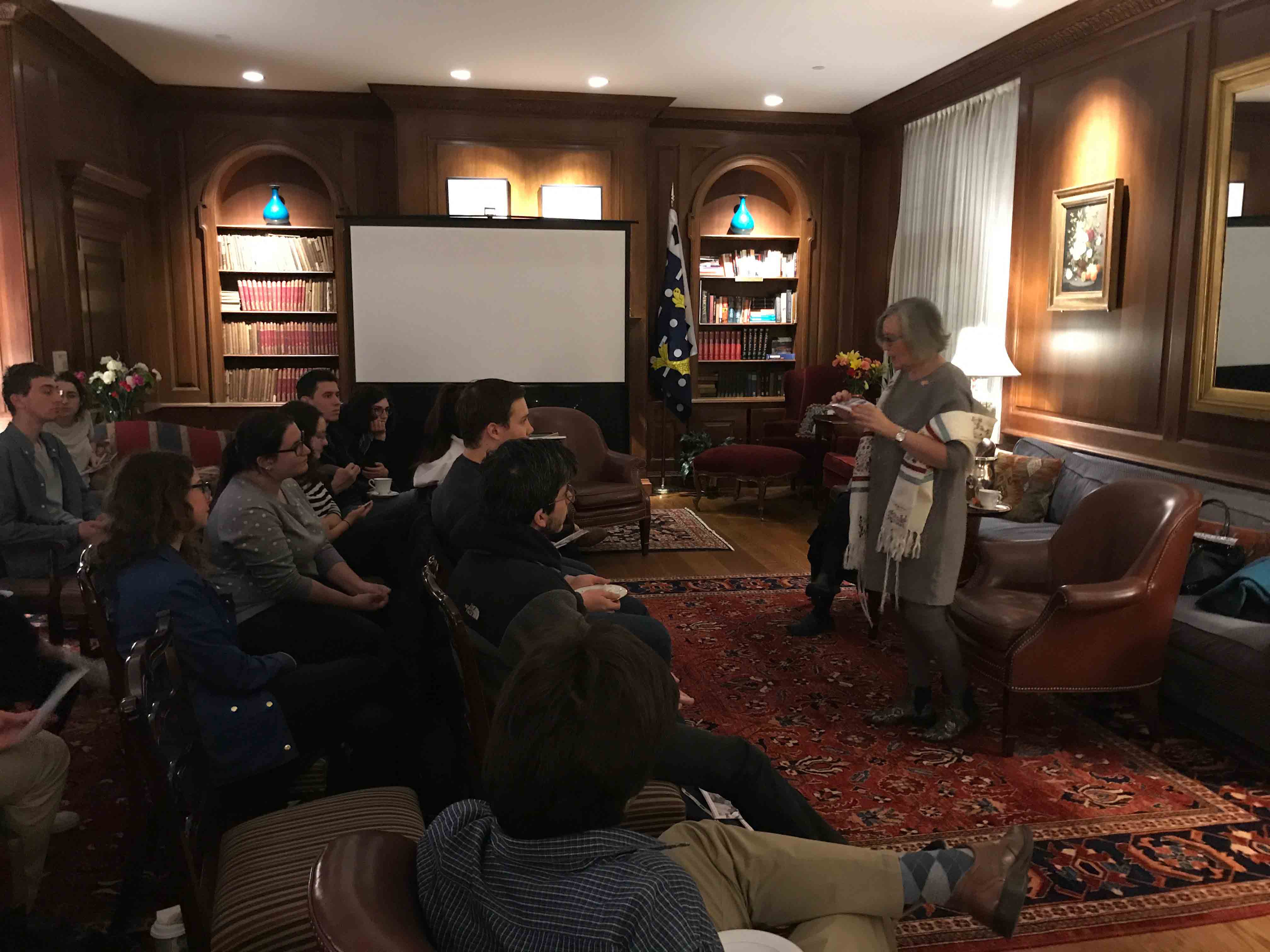
Every year, millions of people from around the world travel to Jerusalem’s Western Wall to pray at one of Judaism’s most sacred sites. When they arrive, male guests are directed to a spacious prayer section; women are relegated to a much smaller area, where they cannot pray out loud, read from the Torah or wear the traditional tallit.
On Thursday night, Lesley Sachs, a women’s rights activist and the executive director of Women of the Wall Nashot HaKotel, joined Head of Grace Hopper College Julia Adams for a tea to discuss her work fighting for religious equality at the Western Wall.
“We have a right to be treated equally,” Sachs told the News. “We love Israel, we work for Israel, we care for Israel. We have a right for Israel to love us the way we love it. Our Judaism is as worthy as any Judaism.”
The tea, which was co-hosted by the Slifka Center for Jewish Life at Yale and the Yale Friends of Israel, began with a short talk by Sachs about her work with Women of the Wall, followed by an extended Q&A session. Questions addressed recent conservative movements in Israel, agreements with the Israeli government to increase equality at the Wall, the role of secular activism in the movement and other issues.
Women of the Wall was created in 1988 to address issues of gender equality and freedom of religion, both Sachs and Adams said. Seventeen women compose the leadership team of the organization, and hundreds more around the world have contributed to the cause.
“[Their work] dovetails the quests for women’s participation in the public sphere and for religious freedom,” Adams said.
The Western Wall, or Kotel, was built more than 2,000 years ago. Today, it is largely destroyed, with only a small section still standing. That section is overseen by Conservative Rabbi Shmuel Rabinovitch, who began his life term as rabbi of the Western Wall in 1995. During his tenure, Rabinovitch has implemented a number of orthodox rules and regulations.
For example, the men’s section features hundreds of Torah Scrolls for visitors to read from, while the women’s section features none. Additionally, visitors are prohibited from bringing their own Torahs into the prayer sections and are inspected upon entry.
In fact, around 200 other activists recently pushed through the guards at the Wall to read from a Torah in the women’s section. Sachs said the episode elicited a positive reaction from men and women alike.
Sachs added that her organization focuses on the Western Wall because it is a symbol for Judaism at large, adding that achieving gender equality there would be a catalyst for other social movements in Israel.
“[Religious freedom at the Western Wall] would be the beginning of the end of the monopoly over religion in Israel,” she said.
Asked about secular support for the movement, Sachs said that, while such support exists, Women of the Wall is a religious movement at its core. Nonetheless, her organization has partnered with various secular feminist organizations as part of its broader mission to integrate women into the public sphere.
Sachs added that she hoped the tea would generate support for religious equality in Israel and urged attendees to go to a Yale Political Union event with the mayor of Jerusalem, who spoke the same night, to make their concerns known.
Michael Michaelson ’20, who planned the event, praised Sachs’ work.
“Through her civil disobedience, her legal pursuits and her general activism, she is doing this incredible work to make sure the Western Wall embodies our Jewish values,” he said.
The Slifka Center was founded in 1995.
Niki Anderson | niki.anderson@yale.edu







